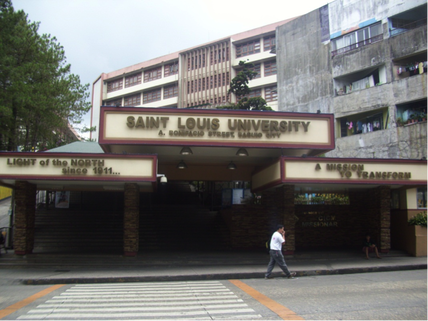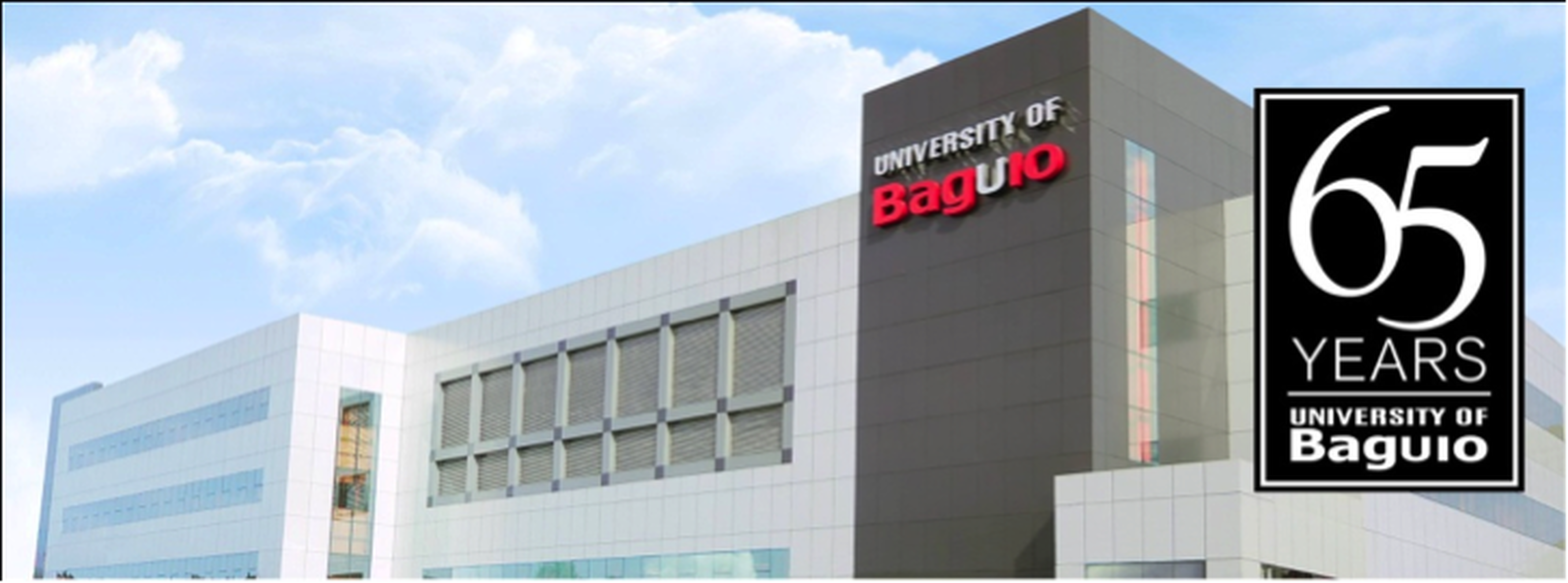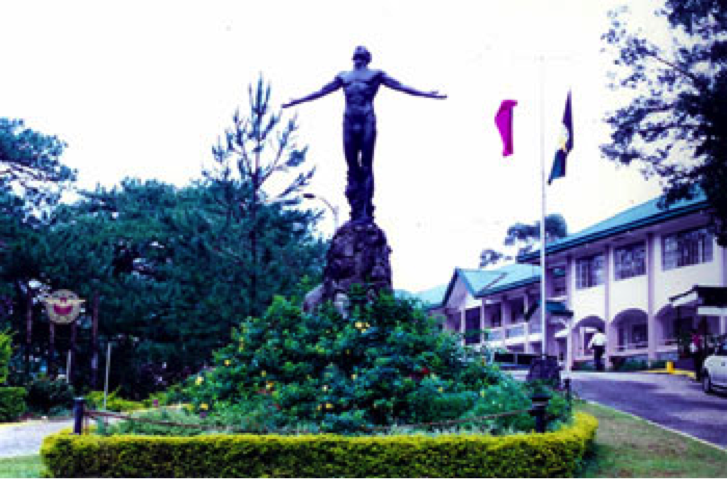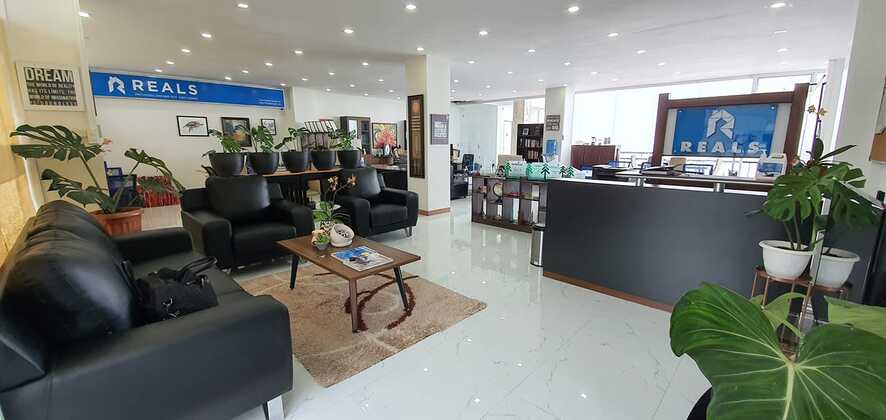 A photo of the University of Baguio. Taken from Google. One of Baguio City’s major claims to fame is its status as a center of education of the entirety of Northern Luzon, with a sizeable amount of its population comprised of students who flock from all over the greater part of Northern Luzon to seek an education. With nearly half of the city’s population composed of young, wide-eyed, ambitious students, there’s no surprise that schools have to compete and vie for their attention, taking up a large amount of the city’s real estate in the process. Take, for example, the University of Baguio - a private, multidisciplinary university located in the heart of Baguio City. Founded by Dr. Fernando Gonzaga Bautista and Rosa Castillo Bautista on August 8, 1948 as the Baguio Technical and Commercial Institute, the University of Baguio now boasts over 20,000 students thanks to the University of Baguio’s open admission policy, which lacks a stringent entrance examination that deters students from entering the University. A photo of Saint Louis University. Taken from Google. Or what about the Saint Louis University (SLU), a private teaching university founded by Rev Fr Séraphin Devesse of the Congregatio Immaculati Cordis Mariae (CICM) missionaries? As of 2014, it boasts a student population of nearly 30,000 students, the largest to be seen north of Manila. The University is also close to Baguio City Market and Session Road, a pleasing prospect to any prospective student out after school. A photo of the University of the Philippine’s classic “oblation” statue. Taken from Google.
There are many others, of course – such as the Unviersity of the Philippine’s Baguio Campus, whose traditionally strict and difficult entrance exams mean that only truly motivated students can get in’s UPB’s lush real estate. Of course, there is also the Philippine Military Academy (PMA) to consider, as well as the University of the Cordilleras, founded by Benjamin Salvosa after WWII as Baguio Colleges (1946-1967), and incorporated into Baguio Colleges Foundation in 1967, finally being renamed as such when it received full university status in 2003. There are also numerous “English academies” situated around Baguio City, catering to foreign nationalities seeking an English language education with which to make them competitive in the global market as well as being a useful tool in seeking employment abroad. The strategic location of Baguio’s real estate, whose climate is much more welcoming to foreigners, makes the city a hotspot for these kinds academies to thrive and flourish. It becomes obvious then that real estate investment in Baguio City is a big deal, as students flock to the city. Inns, lodges, hotels, condominiums, as well as house and lots in Baguio City become a premium, as young students away from their homes move to Baguio to seek an education. In fact, it becomes a powerful investment in real estate – purchasing a condominium or house and lot in Baguio City for your own use not only means easy access to all the city has to offer, whether it be education or business, but also allows you to rent out living space for other people looking to live in Baguio City as well. This is doubly beneficial for foreigners who seek temporary housing in the city, as they pursue their education or business – having a well-to-do condominium or house and lot in Baguio City ensures their stay will be pleasant and free from distractions. Education is not the only reason people flock to Baguio City, of course – but it is one major factor that should motivate you into looking at real estate investment in Baguio City.
0 Comments
Leave a Reply. |
Archives
July 2024
Categories
All
|
Hi! Welcome to our website. Having an agent/broker on your real estate search is a gift because with or without them the price of the property is always the same. They give you FREE SERVICE and only pure service. On your part, everything is to gain. Claim your gift now! :)
meet your Real estate Broker Partner:
Roman Joe Anoso, RN, REB
Real estate Broker PRC license number: 19887
HLURB registration number: CAR-B-05/21-029
HLURB registration number: CAR-B-05/21-029
Roman joe Anoso is a multi-awarded real estate broker, consistent Top #1 for 8 years to date, being recognized by the following companies:
Suntrust Properties, Inc.
- Overall Nationwide Top # 1 Real estate broker year 2018:
Vista Residences, Inc.
- Overall Nationwide Top # 1 Real estate broker year 2017:
Goshen Land capital, inc.
- Overall Nationwide Top # 1 Real estate broker year 2011 to 2016:
Suntrust Properties, Inc.
- Overall Nationwide Top # 1 Real estate broker year 2018:
Vista Residences, Inc.
- Overall Nationwide Top # 1 Real estate broker year 2017:
Goshen Land capital, inc.
- Overall Nationwide Top # 1 Real estate broker year 2011 to 2016:
office address: REALS Corporation, Barangay Dontogan, Baguio city, 2600
personal: +63917-5645-863
viber/whatsapp: +63917-5645-863
add him on facebook (CLICK HERE)
office landline: 074-442-2353 (for clearer conversation)
email: [email protected]
skype: romankat2
website: www.realestatebaguio.com
personal: +63917-5645-863
viber/whatsapp: +63917-5645-863
add him on facebook (CLICK HERE)
office landline: 074-442-2353 (for clearer conversation)
email: [email protected]
skype: romankat2
website: www.realestatebaguio.com
official Real Estate Brokerage Website of REALS Corporation
for our affiliate program CLICK HERE
for our affiliate program CLICK HERE



 RSS Feed
RSS Feed




